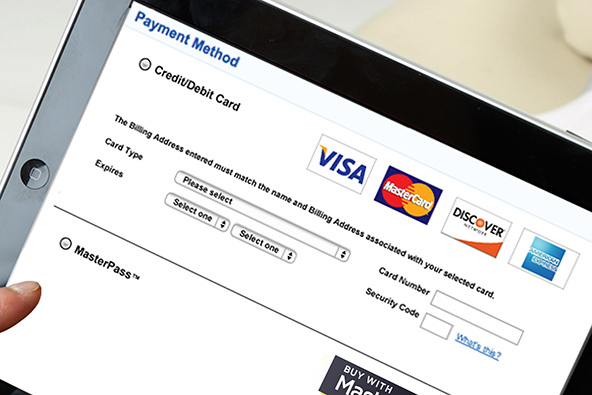Things You Shouldn’t Do When Looking for a High-Risk Merchant Account

Over the past few months I’ve written quite a bit about high-risk merchant accounts — much more than I ever have. I’ve showed you how the merchant review process looks from the standpoint of the payment processor, I’ve written about the types of documents we need when considering an application and have explained why we need them. I’ve also devoted a considerable amount of time and effort on the issue of communication, for I’ve realized long ago that a merchant with sloppy communication skills is highly unlikely to be managing a successful business.
Today I’ve decided to share my thoughts on what a high-risk merchant account applicant should not be doing during the review process. While experience clearly tells me that most applicants will do what they will do — right or wrong — regardless of any advice they may get, if I can influence even a handful of people, this whole exercise will be worth it. What you need to realize is that underwriting a high-risk merchant account is an incredibly involved process and the smallest of things can make a difference — in one direction or the other. So, whereas it is easy to get frustrated when you are continually asked to provide one document after another, long after you’ve filled out and signed the application forms and supplied the supporting paperwork, and explain a string of seemingly unrelated things, being able to nevertheless keep a working relationship with your prospective processor is crucial — perhaps the thing that at the end will decide the outcome. With that in mind, let me offer my suggestions.
The Pre-Application Communication
The vast majority of the merchants who contact us to inquire about our services end up getting nowhere — they don’t even make it to the pre-application process. And while it is true that most of them are simply unqualified for the type of service we provide, there are still too many who could have at least received a proposal, had they been more diligent in their communication practices. See, there are things we need to do, before we can tell you whether we would be able to work with you and on what terms and we just have to go through the process — there is no other way. So let’s review the things that are best avoided during the pre-application process.
Merchants typically contact us by filling out an information form on our website or blog, like this one. The purpose of this form is to give us a general idea of whether or not a given merchant would be a good fit for us. If the prospect looks promising, we follow up with a phone call or an email to gather additional information; if it does not, we say so in an email. So the first thing to avoid is giving us false information in that information form — if we end up going through the application process, the valid information will eventually come to light and, if it is not quite what we want to see, your application will be summarily declined and you will have lost everyone’s time, very much including your own. We may have a different type of a solution that might work for you, but at this point we would not be willing to keep working with an applicant whose reliability cannot be trusted.
The other thing you should avoid doing during the pre-application process is to keep insisting on getting details about the specific terms of the service we would provide. See, this is not the type of payment processing provided by, say, Square or PayPal. We cannot tell you in advance the precise discount rate we would offer you, what the payout schedule would be or whether or not there would be a reserve. These are all things that are determined on a case-by-case basis and will be included in the detailed proposal you will receive at the completion of the application process. Demanding that you get specific answers to questions like these before the application process has even begun is a non-starter.
Surviving the Application Process
OK, now you have filled out, signed and initialed the application forms, given us copies of your six latest processing statements and provided all other paperwork we had asked of you. Well, now we can initiate the underwriting process, during which it is inevitable that we will come upon things that would need to be clarified, which can mean asking for either more paperwork or a written explanation. This is where our merchants typically run into their biggest troubles. Having just supplied all the paperwork needed to get the process started — and, admittedly, it is a lot of paperwork — they feel like they’ve done their bit and can now just relax and wait for us to do our part. Well, this is not how it works in high-risk. Things tend to start creeping out of the woodwork once you take a close look into a merchant with high volume and at least some processing history. Remember, the underwriter is considering taking on a lot of risk, so he is bound to be very careful.
With that in mind, you should not argue with us about the need for an additional piece of documentation or an explanation of something or other. We would not have made the request if we didn’t have to and will do our best to explain exactly why it is that we need the thing we ask for. Without your full cooperation, we just can’t make this work.
Relatedly, you should not be setting deadlines for completing the application process. On occasion we are able to get an application approved and the account set up in a few days, but much more often the process takes weeks or months. We know that you need the account just as soon as possible and are doing our best to accommodate, but there are procedures we need to follow and we will follow them, however long it may take. Putting us under additional pressure will not make any difference, other than strain our relationship.
The Takeaway
See, we want your business — we can’t do payment processing if we have no one to process payments for. However, the nature of our business — the types of industries we serve — requires that we are extremely cautious when evaluating new applicants. If we get one wrong — and it’s happened before — we can end up losing a lot of money and jeopardize our relationships with our acquiring partners and the Associations. We just have to be careful and not doing your part during the application process will not help either of us. So don’t do it.
Image credit: Gemalto.com.


